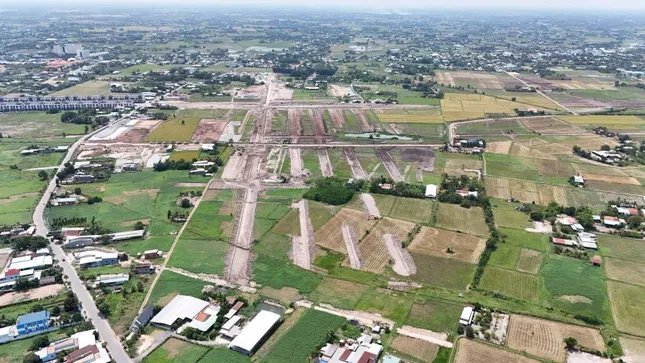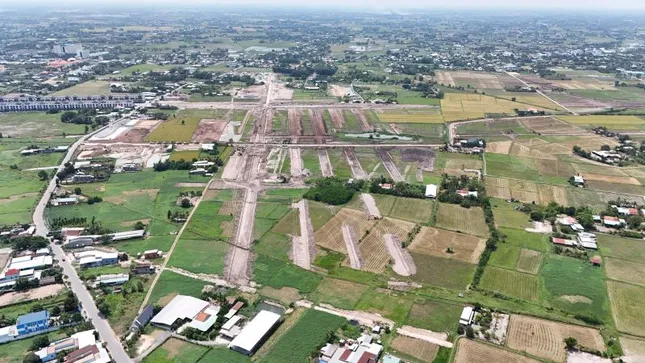The Director of the Institute of Resource and Environmental Economics in Ho Chi Minh City has proposed to the city’s People’s Committee Chairman, Nguyen Van Duoc, to increase the price of agricultural land in the land price framework to 65-70% of residential land prices to reduce land use fees for locals.
Decision 79/2024 on amending and supplementing Decision 02/2020 on land prices in Ho Chi Minh City has helped the city’s authorities tremendously in compensation, resettlement, land rent calculation, and taxes.
However, the land price framework has set the agricultural land prices too low, resulting in budget difficulties as people withdrew their land-use tax dossiers over the past time.
The Institute of Resource and Environmental Economics in Ho Chi Minh City has also submitted a scientific assessment report on the market impact of applying the land price framework according to Decision 79/2024. The results showed that the high land prices have negatively affected the overall market in the area.

The Institute proposed adjusting agricultural land prices in Decision 79 to 65-70% of residential land prices.
This has led to reduced budget revenue from changing land use purposes, hindering the real estate market and deeply affecting the construction materials market due to restrictions on new constructions by locals. These changes have had a clear impact on people’s lives, evident in business premises rentals, reduced purchases, and consumption. It will also influence the city’s double-digit growth target for 2025.
According to Dr. Pham Viet Thuan, Director of the Institute of Resource and Environmental Economics in Ho Chi Minh City, locals now have to pay 250-300% more in taxes when converting agricultural land to residential land compared to before the land price framework took effect. This is because the adjusted land prices in Ho Chi Minh City have a large difference between residential and agricultural land prices. As a result, the land-use fee when changing the land purpose increases significantly, calculated by subtracting the agricultural land price from the residential land price, making it unaffordable for many locals.
To ensure objectivity and comply with the Land Law 2024, with the new land price framework taking effect from January 1, 2026, the Institute proposes that the Chairman of the Ho Chi Minh City People’s Committee re-evaluate the low-set agricultural land prices, lacking scientific basis and market principles as per Decree 71/2024.
Therefore, it is necessary to adjust the land price framework for the last six months of 2025 to address the challenges faced by locals and increase budget revenues before the new land price framework takes effect on January 1, 2026, for the newly merged Ho Chi Minh City. Adjusting the agricultural land prices in the land price framework under Decision 79/2024 is within the authority of the Ho Chi Minh City People’s Committee Chairman and complies with the Land Law and related legal regulations.
The Institute proposes adjusting agricultural land prices in Decision 79 to 65-70% of residential land prices in the land price framework. The scope of this adjustment includes agricultural land located in residential areas or agricultural land in the same plot as residential land.
















